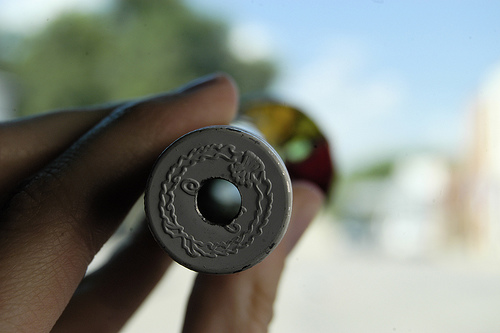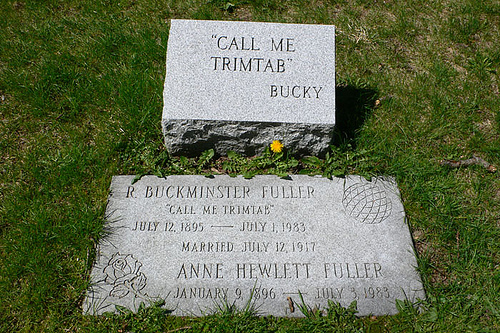“When we change our point of view, it can be astonishing how different our experience can be.”
I love the metaphor of looking through a kaleidoscope. Mundane objects suddenly become incredibly beautiful. More importantly, it only takes the tiniest flick of the wrist to create an entirely different picture. In an earlier post I wrote about the concept of trim tabs – those tiny rudders that help huge ships change course. Today I want to give a few examples of the power and joy of seeing things in a new way.
Everything Depends on Your Point of View
My friend Robert Scheinfeld, author of the mind-bending book Busting Loose from the Money Game, likes to demonstrate this idea by comparing the different experiences one can have of a football game. It all depends on your point of view.
If you are one of the players on the field you’ll be keenly aware of the other players around you at any given moment. You’ll see, hear and yes, smell things that people just a few feet away on the sidelines won’t.
Moving our point of view further up into the stands to a fan’s point of view, we are able to see the entire football field and how all of the players are interacting at once. While it’s true from this perspective we have less sensory information than a player on the field, we gain the ability to see the larger patterns in the game as they play out.
Television cameras bring the ability for referees to replay close calls in slow-motion giving us the ability to see things formerly invisible to the eye that may change the outcome of the game or even an entire season.
Moving even further out, the blimp’s eye view of the stadium reveals a completely different perspective of abstract beauty.
Shifting Your Inner Kaleidoscope
A teacher once told me the story of much he had suffered as a child because for years he had never heard his father say the words, “I love you.” My teacher grew up and moved away without ever being told his father loved him. He remained sad and even annoyed whenever he called home because his father never seemed satisfied by all of his son’s accomplishments. Instead, because they were strict vegetarians, his father would nag him about was what he was eating.
One day in a flash of insight my teacher’s inner kaleidoscope turned and he saw the concern about his diet wasn’t criticism, it was his father’s way of showing love. From that moment on whenever his father brought up the subject of food, my teacher would smile and say, “I love you too dad.”
At first this was confusing to his father, but one day my teacher was surprised when his father responded and unexpectedly said, “I love you too, son.” These days his father never fails to say how much he loves him. And should his father forget to mention food, my teacher wistfully says, “Aren’t you going to ask me about what I’m eating Pop?”
Shifting Your Personal Point of View Has a Ripple Effect
We can change things in the world by changing our point of view or by seeing how to combine things in a new way. And it isn’t just adults who have this ability. A turn of the kaleidoscope reveals that kids are often good at this.
When he was only 11 years old, Casey Golden was disturbed by the number of trees that were destroyed each year to make golf tees. So he cooked up a biodegradable cornstarch version in his kitchen with his mom.
That invention was patented, picked up by K-mart and became Casey’s first company. His idea has inspired a whole new industry of cornstarch-based eating implements from chopsticks to plates. Today Casey Golden heads a company called Small Act which teaches non-profits how to create raise funds via social media.
Meet GLASSPHEMY!:
A New York community plagued with broken glass in empty lots was failing at efforts to get people to stop breaking bottles or to clean up the glass. Then a woman turned the kaleidoscope when she asked, “What if we make breaking bottles part of the recycling?” The result?
Glassphemy, a 20-foot high, 30-foot long steel tower designed for participants to hurl glass bottles at friends, enemies, and loved ones who are safely shielded behind bulletproof glass.
What’s not to love about a recycling center celebrates the illicit thrill of breaking bottles while providing material that is reused to make lights and other cool stuff?
Here’s a short video of the action on a typical night of recycling at Glassphemy.
Warning: It’s noisy!



